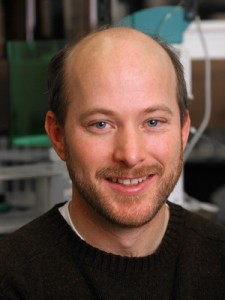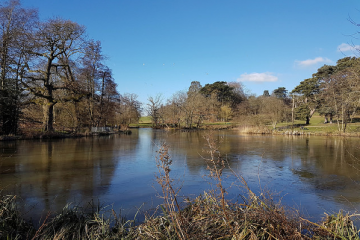
Mark Johnson
Bio:
Dr. Mark Johnson is working to understand how land use practices influence interactions between hydrological and ecological processes, and how these ecohydrological processes further affect ecosystem services including carbon sequestration. Unraveling interactions between the water cycle and the carbon cycle is essential for improving the sustainability of land and water management, especially under changing climatic conditions. Dr. Johnson’s research in ecohydrology demonstrates that soil carbon processes are also integrally important to the health of freshwater ecosystems and drinking water supplies. Dr. Johnson and his team are testing carbon and water cycle interactions to address questions such as: How much carbon does water transport from the land into freshwater systems? His research can also help to answer very applied questions related to soil fertility and water use such as: How much food can be produced in urban environments, and how much water would that require? To address these and other related questions, Johnson is developing innovative approaches to ecohydrological research in partnership with communities, natural resource management agencies and organizations, and industry.
Website: http://ecohydro.ires.ubc.ca/
Google Scholar: https://scholar.google.ca/citations?user=KfQwll4AAAAJ&hl=en

Michael Lathuillière
Bio:
I am a Ph.D candidate in Dr. Mark Johsnon’s Ecohydro Lab working on the development and application of Water Footprint methods for agricultural products.
My research focuses on Water Footprint assessments within the context of agricultural expansion in Southern Amazonia. This work involves: (1) high frequency field measurements of crop water use using eddy covariance, (2) parameterization and validation of crop models for the region’s tropical conditions, and (3) translation of agricultural water use into environmental impacts on the water cycle.
My work contributes to the project “Integrating land use planning and water governance in Amazonia: towards improving freshwater security in the agricultural frontier of Mato Grosso” supported by the Belmont Forum in collaboration with the Tropical Agriculture Department of the Universidade Federal de Mato Grosso (UFMT, Cuiabá, Brazil), UBC’ s Faculty of Land and Food Systems, Woods Hole Research Centre, and the Université du Québec à Montréal’ s Department of Strategy, Social and Environmental Responsibility.
I hold an M.Sc. (Resource Management and Environmental Studies, 2011) and a B.Sc. (Chemistry, 2002) from the University of British Columbia. I am also actively involved in the Water Footprint community through the Water Footprint Research Alliance, ongoing participation in the Water Use in Life Cycle Assessment (WULCA) Ecosystems and Resources Working Groups, and FAO’s Livestock Environmental Assessment and Performance (LEAP) Partnership.
Visit my website
Publications in Google Scholar
